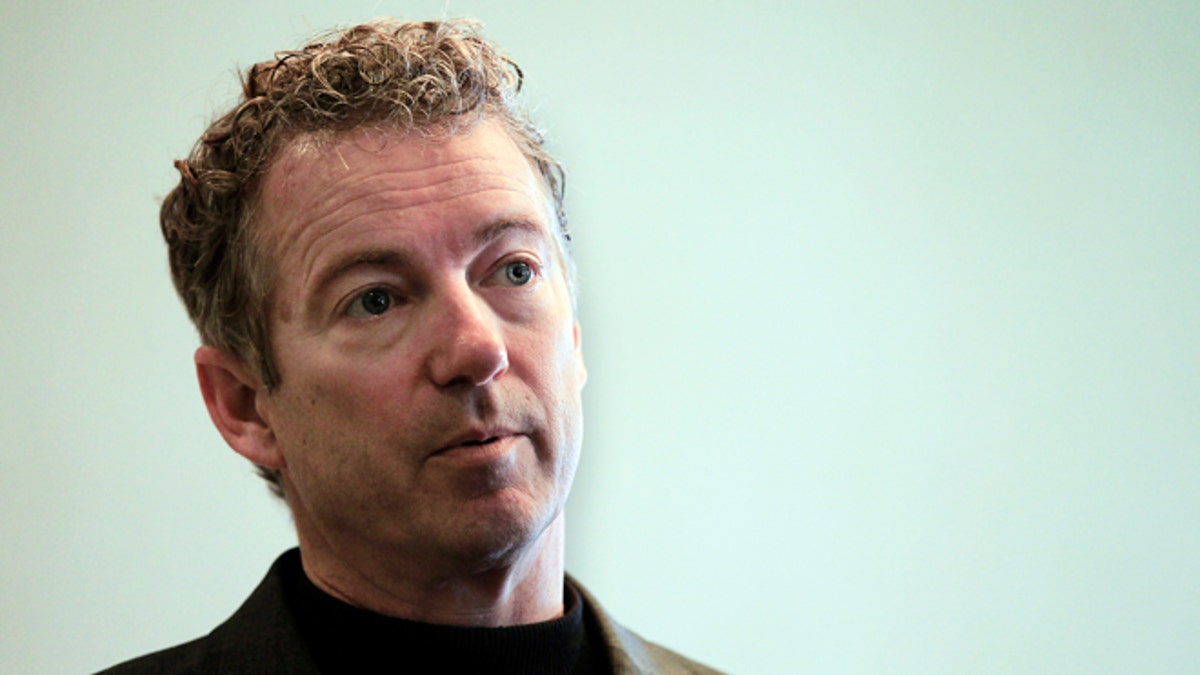
(AP Photo/Cheryl Senter)
And then there were two.
Tuesday Rand Paul, the libertarian junior senator from Kentucky, threw his hat in the ring for the 2016 presidential race in Louisville at the Galt House Hotel.
Paul teased his announcement over the weekend with a video wherein he promised “a different kind of Republican leader.”
Out of the Republican field, Paul is also the most obviously concerned with courting the minority vote and mobilizing young voters. His intention to broaden his appeal – and that of the Republican brand more generally – is resonating with voters.
Indeed, Paul has been that different kind of Republican leader since he rode the Tea Party wave into the Senate in 2010. He has been a favorite of this wing of party for years, winning the straw poll at CPAC three years in a row on a platform of advocacy for civil liberties, family values and against interventionism.
Out of the Republican field, Paul is also the most obviously concerned with courting the minority vote and mobilizing young voters. His intention to broaden his appeal – and that of the Republican brand more generally – is resonating with voters.
Paul has a number of advantages that work in his favor. He has a clear libertarian constituency and enthusiasm from that wing of the Republican party.
Over the years he has built a strong brand name based on his dedication and conviction to the issues that matter most to him. A clear example of this was his 12 hour and 52 minute filibuster on America’s drone program, which drew tremendous support from small government advocates and those who oppose our interventionist foreign policy.
This appeal has carried over into the polls. In the latest Fox News poll, Paul is right in the mix with Wisconsin Governor Scott Walker, former Florida Governor Jeb Bush and Texas Senator Ted Cruz. Paul garners 9% of the vote as compared to Walker’s 15%, Bush’s 12% and Cruz’s 10%. Considering the margin of error, he’s essentially in a statistical tie with majority of the prominent candidates.
Out of the Republican field, Paul is also the most obviously concerned with courting the minority vote and mobilizing young voters. His intention to broaden his appeal – and that of the Republican brand more generally – is resonating with voters.
“White, black, brown, rich, poor, with tattoos and without tattoos, with earrings and without earrings. We need to take our message where it’s not been before,” Paul told the packed room at CPAC earlier this year.
Paul is also in the unique position amongst the Republican field in that he has shown a strong desire to work across the aisle. He worked with New Jersey Democrat Senator Cory Booker on a criminal justice system reform bill and New York Democrat Senator Kirsten Gillibrand on legalizing medical marijuana.
His commitment to bipartisanship will surely work in his favor, especially considering how polarized the landscape in Washington is today and how difficult other candidates – most notably Ted Cruz – have been in terms of working with Democrats. In fact, Paul could draw some crossover Democrats to his quest for the White House.
Ironically, Paul's major problem going into 2016 is the Republican base. They are increasingly skeptical of the senator's isolationist past, given the increasingly dangerous world we live in.
